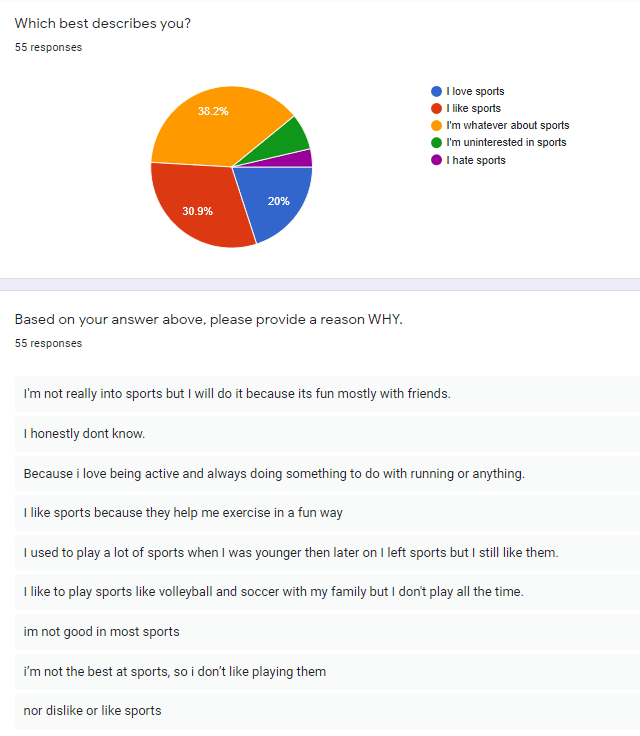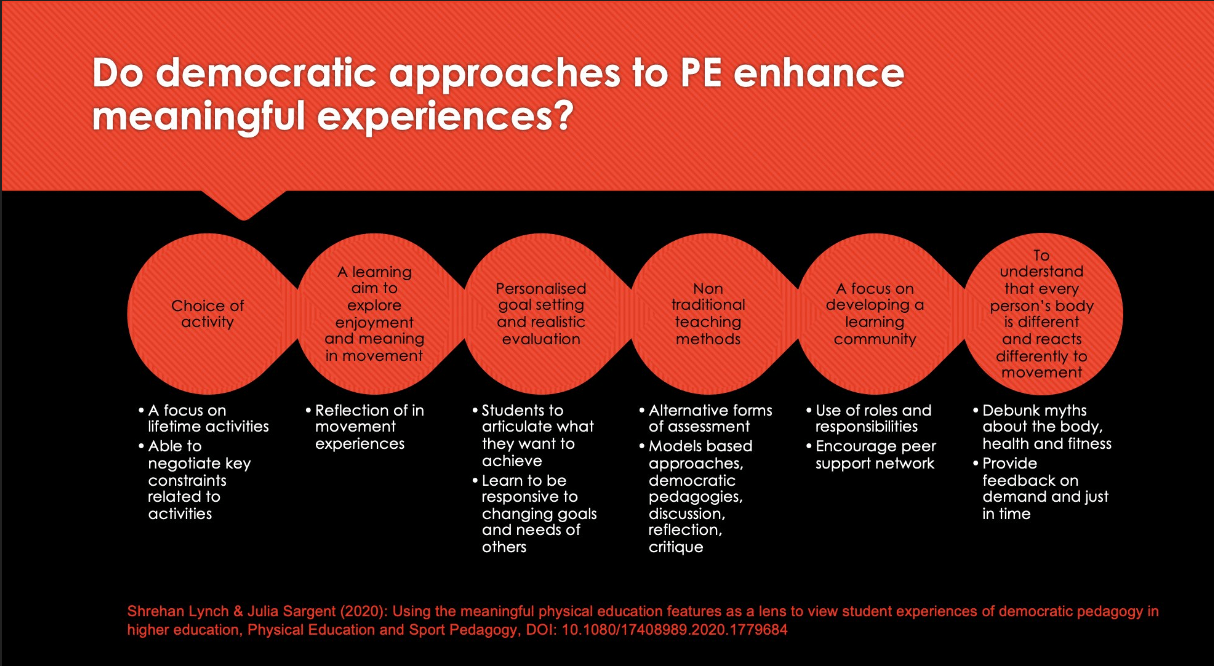
The Problem with ‘Meaningful Phys Ed’
As I start to look outward in my professional career, I keep running into this study about Meaningful Experiences in Physical Education and Youth Sport. In it, “five themes were identified as central influences to young people’s meaningful experiences in physical education and sport: social interaction, fun, challenge, motor competence, and personally relevant learning.” Isn’t this like saying you should learn things in school (vs. considering the bigger question of what schools consider learning)? If meaning is inherently personal, is it possible for a teacher to “facilitate and promote meaningful engagement” within a large group of distinct, varied, and particular individuals?
ANYTHING you do influences their experience. Put the basketball hoops up in prep for volleyball? You negate the option of them ‘bump passing’ it into the basket. Step in to correct their squat posture? You eliminate their ability to figure it out on their own and/or find their body’s natural (autocorrect) way of doing things. It’s a trap. Other subjects aren’t guided by their “meaningfulness”. If they were math would stop with being able to count and calculate money.
Standards are decided upon and upheld. We think this is important. We think you should be able to do this. We think you need to be active, so we determine what to play, when, and the quality in which it should be played. When you think about it, it’s bonkers. Imagine stopping a kid at the park to tell him to get off his swing because it’s time to kick balls until we notice an improvement or consistency.
With every specific thing we look for, we miss ten others. Look for social interaction, miss motor competence. Look for challenge, miss fun. Perhaps this is meant to serve as a sort of checks and balances, but I can’t know what is personally relevant for them unless I understand their experience. What is the significance of getting them to shoot a basketball better? What is the significance of basketball in general?
We sell ourselves the story of confidence and competence. They can do this better so they know they can improve so this must be a life lesson. But for most, if you talk to them, it’s all pretty arbitrary. Those who play sport and love sport and have entered the (feeder) system of sport will find learning about sport (and space and transfer and skill) valuable. It’s built in to what they like and know. But what about the rest? Do you know how many in your class enter into it with a negative bias?

Let’s be honest. What we’re really looking for is are they obliging. Are they doing what we asked them to do (in a manner that suits us). As separate and special as PE is, it is still a part of the educational industrial complex. The goal is to farm compliant workers. That kid at the park, who needs no instruction nor reps nor time quota, gets stripped of his imagination and independence and autonomy. We grow young people who aren’t sure what to do unless they are told and then label them lazy. They self-identify. It’s a character flaw instead of a systemic failure.
Offering them a choice in what to do still comes with the expectation that they do and keep doing. That’s what PE is and is designed to do: make moving something they want to do. But by removing the choice to not move, without threat or repercussion, we force meaning into movement. We uphold and reinforce our own values and beliefs that ‘activity is everything’, and hold their grade hostage unless they show us they agree.

A 2019 study asked University students what they found meaningful in PE. Their conclusion was: We argue that students can have meaningful PE experiences, even when educators do not plan for them. Furthermore, the features of meaningful PE, particularly in relation to ‘fun’, can extend to university settings. Moreover, sociocultural educators with a clear vision for classes can contribute to students developing foundational beliefs towards movement. This is exhibited through employing democratic pedagogies such as high levels of reflection and goal setting.
Again, can we be critical of what we are attempting to define and study? University students may be a group skewed toward achievement. In continuing their education by choice, what might they actually value most, and how do these values and beliefs reflect shape what they find meaningful? Furthermore, what does a successful PE program look like? Is there an answer that can be established and ordained upon, and who is determining the rules?
We as teachers must examine our role in meaning making. Too much and we push our agenda, too little and students remain unchanged and void of any catalyst for growth. Our observations, interactions, and expectations must be managed in a way that seeks out student input yet has a bag full of options at the ready should the feedback lack direction. To know when to lead and be lead is a shared social savvy. Establish that everyone has a role in how and where we go and the ride becomes just as substantial as the destination.
[If you are curious in how I personally do this, I presented on ‘Creating a Learning Atmosfear‘ at last year’s Thinkmovement CareLab in Carmel, California.]
A follow up to this piece will include findings from 2020-2021, and how meaning (and need) differed greatly between online and in person learning.



